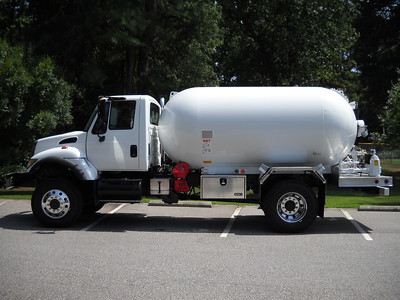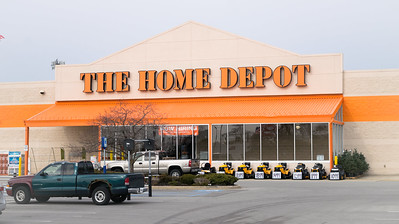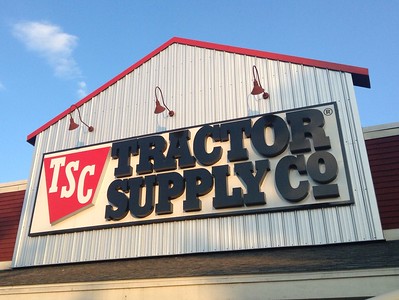
The minimum amount of propane that can be delivered typically depends on the propane delivery company’s policies and the type of service you require. Generally, propane delivery companies provide different options, such as will-call deliveries, automatic deliveries, or emergency deliveries, which may have different minimum delivery amounts.
For residential customers, the minimum delivery amount for propane usually ranges from 100 to 200 gallons, but this can vary depending on the propane supplier. Some suppliers may accommodate smaller deliveries, but they might charge additional fees or require that you purchase a minimum quantity over a certain period.
It is essential to contact your local propane supplier to inquire about their specific minimum delivery requirements and any associated fees. Keep in mind that factors such as location, time of year, and customer demand can also affect delivery minimums and associated costs.
What is the maximum amount of propane that can be delivered?
The maximum amount of propane that can be delivered depends on several factors, including the size of the delivery truck, the capacity of your propane tank, and any legal or safety restrictions.
- Delivery truck size: Propane delivery trucks, also known as bobtails, come in various sizes, with tank capacities ranging from 1,000 to 5,000 gallons. The maximum amount of propane that can be delivered in a single trip depends on the capacity of the truck used by the propane supplier.
- Propane tank capacity: The maximum amount of propane that can be delivered to your property is limited by the capacity of your propane tank. Residential propane tanks typically range in size from 120 to 1,000 gallons, while commercial and industrial tanks can hold up to 30,000 gallons or more. When refilling a propane tank, it’s important to note that it should only be filled to about 80-85% of its total capacity to allow room for the propane to expand safely.
- Legal and safety restrictions: Propane delivery is regulated by various safety codes and guidelines, which can limit the maximum amount of propane that can be transported and stored. For example, the U.S. Department of Transportation (DOT) sets restrictions on the transport of hazardous materials, including propane, and enforces weight limits on commercial vehicles. These regulations can affect the maximum amount of propane that can be delivered in a single trip.
The maximum amount of propane that can be delivered depends on the specific circumstances of each delivery, including the size of the delivery truck, the capacity of your propane tank, and any applicable legal or safety restrictions. To determine the maximum amount of propane that can be delivered to your property, consult your propane supplier and discuss your specific requirements and tank capacity.
Types of Propane Delivery Services
Propane suppliers typically offer different types of delivery services to cater to varying customer requirements. Understanding the differences between these services can help you make an informed decision about your propane delivery needs.
Will-call deliveries
Will-call deliveries allow customers to request propane deliveries as needed, usually by contacting the supplier when their propane tank reaches a certain level (e.g., 30% capacity). This option gives customers more control over their delivery schedule but requires diligent monitoring of the propane tank level to avoid running out of fuel. Will-call deliveries may also be subject to higher costs and longer wait times during peak demand periods.
Automatic deliveries
Automatic deliveries involve the propane supplier monitoring the customer’s propane usage and scheduling deliveries based on factors such as consumption history, weather, and the size of the propane tank. This service ensures a consistent supply of propane and eliminates the need for customers to monitor their tank levels. However, automatic delivery contracts may include additional fees or require customers to commit to purchasing a minimum amount of propane over a specified period.
Emergency deliveries
Emergency deliveries are typically reserved for situations where customers run out of propane unexpectedly and require an immediate refill. These deliveries often come with higher costs and are subject to availability, especially during peak demand periods. Regular monitoring of your propane tank level and scheduling deliveries in advance can help avoid the need for emergency deliveries.
Minimum Delivery Amounts
Propane delivery companies generally impose minimum delivery amounts to ensure the cost-effectiveness and efficiency of their delivery services.
Typical minimum amounts for residential customers
For residential customers, the minimum delivery amount for propane usually ranges from 100 to 200 gallons. This amount can vary depending on the propane supplier and the type of delivery service chosen.
Variations between propane suppliers
Some propane suppliers may offer smaller deliveries to accommodate customer needs, but they may charge additional fees or
Tips for Choosing a Propane Delivery Service
When selecting a propane delivery service, consider the following factors to ensure that you choose a supplier that meets your needs and provides reliable, cost-effective service.
Comparing delivery options and fees
Research different propane suppliers in your area and compare their delivery options, minimum delivery amounts, and associated fees. Look for suppliers that offer flexible delivery options, competitive pricing, and transparent fee structures.
Evaluating customer service and reliability
Choose a propane supplier with a reputation for excellent customer service and reliability. Read customer reviews, ask for recommendations from friends or neighbors, and inquire about the supplier’s response times for deliveries and service calls. A reliable supplier will help you avoid running out of propane and provide prompt assistance when needed.
Assessing contract terms and conditions
Before entering into a contract with a propane supplier, carefully review the terms and conditions of their delivery services. Look for any hidden fees, cancellation penalties, or other contractual obligations that may affect your overall satisfaction with the service. Ensure that the contract includes provisions for changes in your propane consumption or delivery needs and that it allows for flexibility in scheduling deliveries.
How to Request for a Delivery
Requesting a propane delivery can be a straightforward process, but it’s essential to be well-informed and prepared to ensure a smooth and timely delivery. Follow these steps to request a propane delivery:
- Monitor your propane tank level: Regularly check your propane tank gauge to ensure you have an adequate supply of propane. The gauge typically displays the percentage of propane remaining in the tank. Most experts recommend scheduling a delivery when the tank level reaches around 20-30% to avoid running out of propane.
- Choose a propane supplier: If you don’t already have a propane supplier, research and compare local suppliers based on delivery options, pricing, customer service, and contract terms. Ask for recommendations from friends, neighbors, or online review sites to find a reliable and reputable supplier.
- Set up an account: If you’re a new customer, you may need to set up an account with your chosen propane supplier. This process may involve providing your contact information, delivery address, billing preferences, and details about your propane usage and tank size.
- Select a delivery option: Determine whether you prefer will-call, automatic, or emergency delivery services based on your propane usage and monitoring habits. Discuss the available options with your supplier and choose the one that best suits your needs.
- Schedule your delivery: Contact your propane supplier to request a delivery. You can do this via phone, email, or online, depending on your supplier’s preferred communication method. Provide the necessary information, such as your name, address, account number, and current propane tank level. If you’re a will-call customer, be sure to schedule your delivery well in advance, especially during peak demand periods, to ensure timely service.
- Prepare for the delivery: Before the delivery date, clear any obstacles, such as vehicles, debris, or snow, that may impede the delivery truck’s access to your propane tank. Make sure the delivery area is safe and secure, and if possible, be present during the delivery to address any questions or concerns the driver may have.
- Confirm delivery details: The propane supplier will provide a delivery confirmation, including the date and estimated time of arrival. Ensure that you or someone responsible is available to receive the delivery and address any issues that may arise.
- Perform a post-delivery inspection: After the delivery is completed, check the propane tank gauge to ensure that the correct amount of propane has been delivered. Inspect the area for any signs of leaks or damage and report any concerns to your supplier immediately.
By following these steps, you can request and schedule a propane delivery efficiently, ensuring a consistent supply of propane for your home or business. Remember to maintain open communication with your propane supplier and stay informed about your propane usage to avoid running out of fuel or encountering unexpected delivery issues.
Conclusion
Understanding propane delivery minimums, options, and factors affecting deliveries is crucial for ensuring a consistent supply of propane and minimizing costs. By comparing different suppliers, evaluating their customer service and reliability, and carefully reviewing contract terms, you can select a propane delivery service that meets your needs and provides peace of mind. Regular monitoring of your propane tank levels and proactive scheduling of deliveries will also help prevent the need for emergency deliveries and ensure the safe and efficient operation of your propane-powered appliances and equipment.

Mike is an experienced propane technician with over 15 years of professional experience in the field. He has dedicated his career to helping customers with their propane needs, from installation to maintenance and repair. Together with Jeremy, he co-founded this website to provide useful information and guidance to customers seeking reliable propane services.



